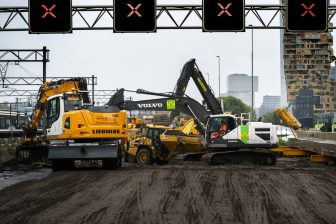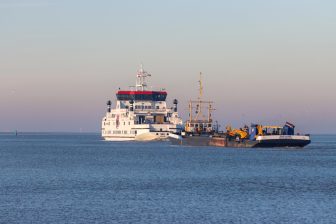Broadband on Trains achieved with Thalysnet
True broadband access for THALYS train passengers travelling between Paris, Brussels, Amsterdam and Cologne at 300 kilometres per hour is now possible.
"Thalysnet" was officially launched on 14 May 2008 with press conferences held in Brussels and Paris. More than 60 media representatives from Germany, The Netherlands, Belgium and France were all given the opportunity to test the system during a train trip between Rotterdam and Paris.
A consortium, lead by Nokia Siemens Networks, combined satellite communications with UMTS and WiFi technologies to provide a continuous Internet connection on board trains travelling across borders at the speed of 300 km/h. One of the companies in the consortium is the UK-based 21Net, which carried out a pilot project in 2005, under the European Space Agency’s Broadband on Trains initiative.
21Net worked with leading railway operators such as RENFE (E), and SNCF (F) along with THALYS, to develop a solution combining bi-directional satellite communications with terrestrial wireless technologies. Its "Broadband To Trains" system is a robust and technical mature system that applies to the railway standards. Tests were then conducted by THALYS which provided experimental Internet service between Paris, Brussels and Amsterdam. These tests proved the system designed by 21Net was operable, and considerable interest in the service was shown by passengers.
"THALYS intends to equip its entire fleet with broadband communication capabilities," explains Norbert Hübner of ESA Telecom. "Combined with a travel time of 3h15min between Amsterdam and Paris in a comfortable office-like environment for a reasonable ticket price, THALYS trains could become a serious alternative to air travel between Amsterdam, Brussels, Cologne and Paris."
The 21Net system architecture is based on two-way Ku-band satellite system to provide connectivity between the Internet backbone and a master server on the train. A hub station provides the connection from the Internet backbone (and from the network operations centre) via the satellite directly to a low-profile tracking antenna on the train. GPRS and Wi-Fi access between the train and available networks is also provided when access may be obstructed such as when traveling through tunnels.
21Net has mastered the use of a unique mobile DVB/RCS modem to share the satellite bandwidth across all the trains of the fleet, allocating bandwidth on demand according to the usage level of the train. With 21Net, Satellite bandwidth scales linearly with Internet use.
The use of two-way Ku-band satellite transmission enables 21Net to deliver high bandwidth (2Mbit/s by 512kbit/s) connectivity to the train which can be shared by simultaneous users.
The complete THALYS fleet, 26 trains in total, will be equipped with Thalysnet by October, 2008. Currently six trains are equipped. Thalysnet will be included in the ticket price for Comfort One passengers, while Comfort Two passengers are given the option of paying 6,50 Euro per hour or 13 Euro per trip regardless of how long the passenger uses it.
U las zojuist één van de gratis premium artikelen
Onbeperkt lezen? Profiteer nu van de introductieaanbieding voor € 10,- per maand.
Bent u al abonnee?



